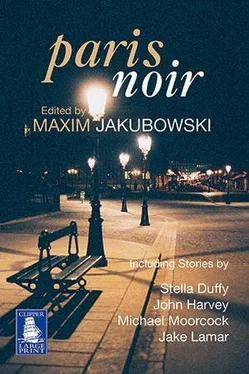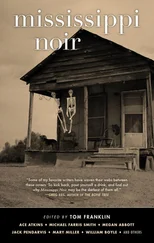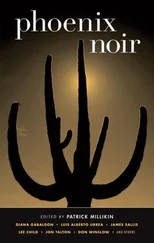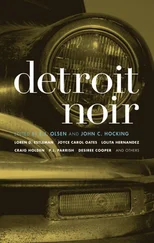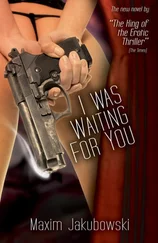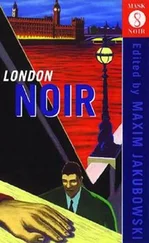Maxim Jakubowski - Paris Noir
Здесь есть возможность читать онлайн «Maxim Jakubowski - Paris Noir» весь текст электронной книги совершенно бесплатно (целиком полную версию без сокращений). В некоторых случаях можно слушать аудио, скачать через торрент в формате fb2 и присутствует краткое содержание. Жанр: Детектив, на английском языке. Описание произведения, (предисловие) а так же отзывы посетителей доступны на портале библиотеки ЛибКат.
- Название:Paris Noir
- Автор:
- Жанр:
- Год:неизвестен
- ISBN:нет данных
- Рейтинг книги:3 / 5. Голосов: 1
-
Избранное:Добавить в избранное
- Отзывы:
-
Ваша оценка:
- 60
- 1
- 2
- 3
- 4
- 5
Paris Noir: краткое содержание, описание и аннотация
Предлагаем к чтению аннотацию, описание, краткое содержание или предисловие (зависит от того, что написал сам автор книги «Paris Noir»). Если вы не нашли необходимую информацию о книге — напишите в комментариях, мы постараемся отыскать её.
Edited by Maxim Jakubowski, the stories range from quietly menacing to spectacularly violent, and include contributions from some of the most famous crime writers from both sides of the Atlantic, as well as the other side of the Channel.
Paris Noir — читать онлайн бесплатно полную книгу (весь текст) целиком
Ниже представлен текст книги, разбитый по страницам. Система сохранения места последней прочитанной страницы, позволяет с удобством читать онлайн бесплатно книгу «Paris Noir», без необходимости каждый раз заново искать на чём Вы остановились. Поставьте закладку, и сможете в любой момент перейти на страницу, на которой закончили чтение.
Интервал:
Закладка:
Exuberantly joining the many wine toasts, snapping photos of the happy group, Shay is now the picture of gaiety, enjoying herself for the first time in she doesn’t know how long.
Just before midnight, Shay announces she has to leave if she is going to catch the last Métro home and Anna says, ‘No, stay. You can take a taxi.’ Then she slips a bill to Shay under the table when the others are distracted by cellphones or off in the bathroom. Fifty euros. Too much! Shay whispers.
Anna insists, and Shay puts the bill in her purse. It is a godsend. If traffic flow is good, she can get home for under twenty, and have enough left over to eat for a week. Maybe in that week she would have The Idea, the one she would write that would save her. In any event, she won’t starve.
After dinner, she walks the Norwegians back to their hotel – it is 2 a.m. and they have an early call the next morning so they all kiss and say goodbye to Shay. She looks for a taxi, but the streets are full of people who have missed the last Métro, and the lines at the taxi stations are ridiculously long. So Shay walks further, looking for a street where she might find a free cab without competition. Occupied taxis whiz past her. When she sights a rare free one on the horizon, people pop out of nowhere to grab it from under her. At one point, this means a handful of late-partying Chinese tourists whose bus has broken down near Folies Bergère, all of them in bright red scarves and hats so they’ll be easy to find in a crowd. Even the infrequent Noctabuses that roll by are so jammed she can’t get on.
Clapping her gloved hands to keep them warm, her collar up and scarf around it to keep out the cold, she walks on, wondering if she might freeze to death before she finds transportation, and what her obits might say in that case, a drunk and bankrupt American found frozen stiff in a taxi-hailing posture? Would her life mean anything then, other than as a martyr for the late-night Métro service movement?
Then, on a little street off Sebastopol, a car pulls up beside her, and the driver rolls down a window. Before he can say anything, she says, ‘Are you free?’
He nods, and she jumps in, calculating that her miserable, bone-chilling walk has saved her five euros at least. With this, she can treat herself to a pouch of tobacco, which will aid the creative processes in untold ways. After a few minutes in the cab, she realises that the driver hasn’t turned his meter on, which will save her a few more euros – life is going her way again. Traffic is light and signals are turning green as far as the eye can see.
After a few blocks, though, she feels guilty about cheating a working man, and mentions the meter. He clacks it on. It’s then she notices he is taking a strange route to get to Convention, heading east instead of south and west. She suggests a faster route. He ignores her. She sees his eyes in the rear-view mirror. They are shiny and red, the pupils dilated. He has no driver ID for her to see. The doors are auto-locked.
‘I’ve changed my mind,’ she says. ‘You can let me off here.’
He keeps driving. He looks like a smallish man, like many men here not much bigger than she is. His hair is brown and greying. But she cannot see his face or get a clear image of what he looks like.
Vaguely, she remembers a story about a young woman in England who was picked up by a fake cabbie, raped and killed, her body left in a mattress factory dumpster in Shropshire. She remembers it only vaguely because it was in French, and she read it in a detective magazine while waiting at a doctor’s office, preoccupied as usual by her own problems. Now it has happened to her and this will be her obit: ‘American in Paris slain in grisly rape-murder’, a dripping blood-red headline in a pulpy barbershop magazine.
He turns south. They cross the river to the Left Bank, over a bridge whose name she doesn’t know.
There is a button to unlock the back passenger side on the door beside her, but she will have to wait for a red light, then move fast in order to escape. Tonight, of all nights, they are hitting all the green lights in a seamless journey to hell.
‘You are American,’ he says, in English, with barely an accent.
She says nothing. He wants to make small talk?
‘You are frightened.’
She says, ‘Please let me out. I just want to go home.’
‘You love to scare people. How does it feel?’
‘I don’t like scaring anyone. If you’re talking about Bush, didn’t vote for him, I despise him. Can you let me out here?’
‘You think it started with Bush? They’re all gangsters. And I know gangsters. What’s your price?’
He believes I’m a hooker, she thinks, and says, ‘I’m a writer.’
‘Are you? What’s your price?’
Now she’s sure he’s crazy, and she tries to reach into her handbag for her cellphone. She has no credit on her phone, but maybe she can bluff the guy. She thinks of what she’ll say, ‘Yeah, I found him. You still tracking me? So you know where we are?’
Before she can, he stops and because of her search for her phone she’s distracted from her original goal to unlock her doors and escape. She’s a moment too late. He relocks her doors with his lock, which overrides hers, and then he sticks a gun in her face.
‘Give me your purse,’ he says.
She’s stunned to see a gun in her face, in Paris. She’s never seen a gun before here, except in the movies or on the news. Only the cops and the gangsters have guns here. In her peripheral vision, she sees that they are near the Mitterrand library on the south-east side of the river, a deserted area at night, with lots of lit-up skyscrapers and no people. Even if she could scream, nobody would hear her. She gives him her purse and asks, meekly, ‘What are you going to do with me?’
He doesn’t answer. She sees his eyes in the rear-view mirror and thinks he is smiling.
‘You can let me out. I can’t identify you. I’ve barely seen your face.’
He doesn’t respond to that. ‘I have committed the perfect crime,’ he says.
‘It’s hardly perfect. The owner of this cab is sure to notice it’s gone-’
‘He won’t miss the car for a while. I staked out this cab for a long time. That was a perfect crime too, but not the one I’m talking about. It’s a night for perfect crimes, and I am on a roll. Earlier tonight, I robbed a robber and killed a killer.’
He’s an admitted killer and she is going to die…
‘Don’t you want to know?’ he asks.
‘Know what?’
‘How I committed the perfect crime?’
‘Sure.’
‘What constitutes the perfect crime? Motive, means, opportunity?’
‘An iron-clad alibi,’ she says.
‘I have all that. You see, the people who would look for me are dead in what appears to be an accident, a gas leak that has filled the house with fumes and exploded, killing everyone. The house was well sealed for the winter. The gas could not escape. There were pilot lights on the stove and the furnace, and a light bulb that had started to short-circuit in the basement. Everyone drank a great deal tonight and went to bed around eleven. I saw the explosion from a hill overlooking the house, and then I drove away. It’s been on the radio.’
‘Murder made to look like an accident, OK. But what’s your iron-clad alibi?’
‘I wasn’t there when the victims were killed. I’m not here now. I’m in Monaco. There’s a paper trail there, a hotel reservation, meals ordered in, a priest with secrets who will say he and I enjoyed a long conversation. Of course, I was never meant to be in Monaco. That was just my cover. I was meant to be on my way to Central Africa, delivering a bribe to a general there. I have delivered the money elsewhere.’
Читать дальшеИнтервал:
Закладка:
Похожие книги на «Paris Noir»
Представляем Вашему вниманию похожие книги на «Paris Noir» списком для выбора. Мы отобрали схожую по названию и смыслу литературу в надежде предоставить читателям больше вариантов отыскать новые, интересные, ещё непрочитанные произведения.
Обсуждение, отзывы о книге «Paris Noir» и просто собственные мнения читателей. Оставьте ваши комментарии, напишите, что Вы думаете о произведении, его смысле или главных героях. Укажите что конкретно понравилось, а что нет, и почему Вы так считаете.
